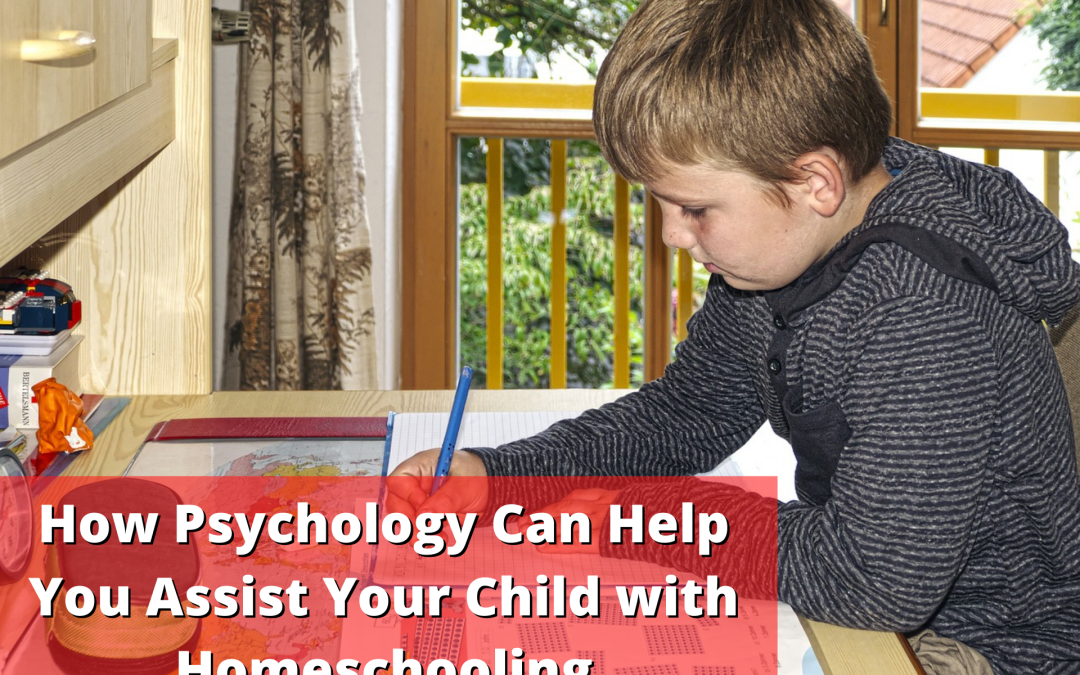Homeschooling is often framed as a decision solely about a child’s development. While this is of course the primary concern, however, it’s also an immense challenge for parents. Whether you’re considering homeschool as a temporary measure due to COVID-19 and school restrictions, or it’s something you were already practicing or thinking about for your children, you’ll need to give serious thought to how you can assist the child’s learning efforts.
This can ultimately be done in a lot of different ways. But one of the more overarching ideas to consider is to gain a better understanding of psychology in a way that leads you to understand and adapt to your child’s home schooling needs.
So — how exactly can you go about gaining that understanding?
Perhaps the most accessible solution is to seek out books that delve into child psychology, and which you can browse through in your free time (even if that means listening on Audible while you’re walking your dog). Naturally a lot of books fit this description, but you can easily find lists of excellent child development books that cover various aspects of psychology, and which are endorsed by experts from assorted child development institutes, doctoral programs in psychology, and so on. You might be surprised how much you can learn from these books, even about how your own child’s mind works.
If you want to go even further with the idea, you can also look into more formal education in psychology. This would once have been a near-impossible prospect for a busy parent, but high-end online education has actually made it more doable. Pursuing an online psychology degree is now something that can be done gradually and with some flexibility, as well as with a specific focus (such as education or child development). Whether or not you ultimately go as far as securing a degree, access to this kind of online education can give you a professional-level understanding of psychology to apply to your assistance with your child’s education.
Those are just a few ideas as to how you can go about gaining knowledge of psychology that can help with your home schooling efforts. As to how this can actually help, consider the following possibilities….
Schedule Consideration
One of the things you may well be better able to help with if you study up on some psychology is how your child responds to different schedules. In our examination of what virtual schoolers can learn from homeschooling, we touched on the importance of regular schedules. In that case, the idea was that temporarily virtual students may benefit from having a sort of “check-in” time that mimics homeroom at the beginning of each day.
Taking this idea a little further though, the structure of a school day at home is a very important day. It doesn’t have to be exactly like it would be in a school, but children tend to respond well to structure. This is something you likely understand as a parent, but which you may appreciate on a deeper level from a psychological perspective. You’ll see what scheduling and structural changes your child responds to, and in what ways. And you’ll be able to help engineer more effective homeschooling as a result.
Understanding Motivation
Motivation is an incredibly important tool in education, and it’s one of the things that can be lacking in some homeschool environments. In traditional schools, there are incentives and rewards that motivate students at all stages — from gold stars Dean’s Lists. And that’s to say nothing of other motivational factors like performing well for admired teachers, or competing effectively against other students.
These gaps in motivational structure have to be filled in homeschooling, and a foundation in human and child psychology may just help you to figure out how to fill them. Different children are motivated in different ways, and the better you understand how your child’s mind operates, the better you’ll be able to identify effective ways to encourage and reward him or her.
Recognizing Social Issues
Social issues among homeschooled children are constantly debated. On the one and, it’s perfectly logical to expect that kids schooled at home will miss out on social opportunities, and may ultimately experience poor — or at least unusual — social development. On the other hand, some university studies on social engagement of homeschooled children have suggested that there’s really no problem at all. In fact, some have found that homeschooled children have higher quality friendships and better relationships with their parents.
Regardless of which side your own beliefs lean toward based on experience, a sound understanding of child psychology is likely to help you identify behaviors associated with social isolation. That way, if necessary, you can adjust your homeschooling approach and work on finding more opportunities for socialization.
Fostering Good Techniques
In a very general sense, understanding psychology will also help you to foster good techniques where homeschooling is concerned! This is essentially what we’re talking about when we discuss figuring out effective motivation or schedules. But you may also be better prepared to discover, say, what learning methods work best for a given subject, or which sort of break leads to a more productive afternoon, and so on.
With an open mind, a psychological perspective, and some trial and error, you may identify all kinds of little tricks, methods, and techniques that add up to more productive days and more effective education — or, in other words, optimal homeschooling.
